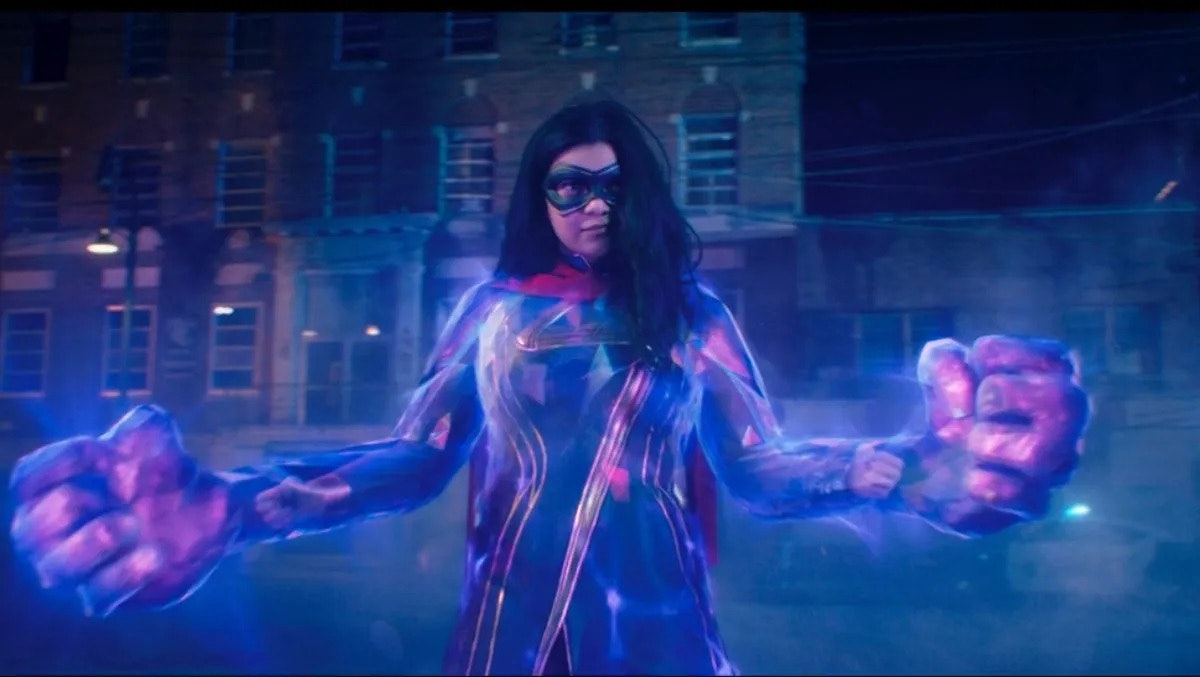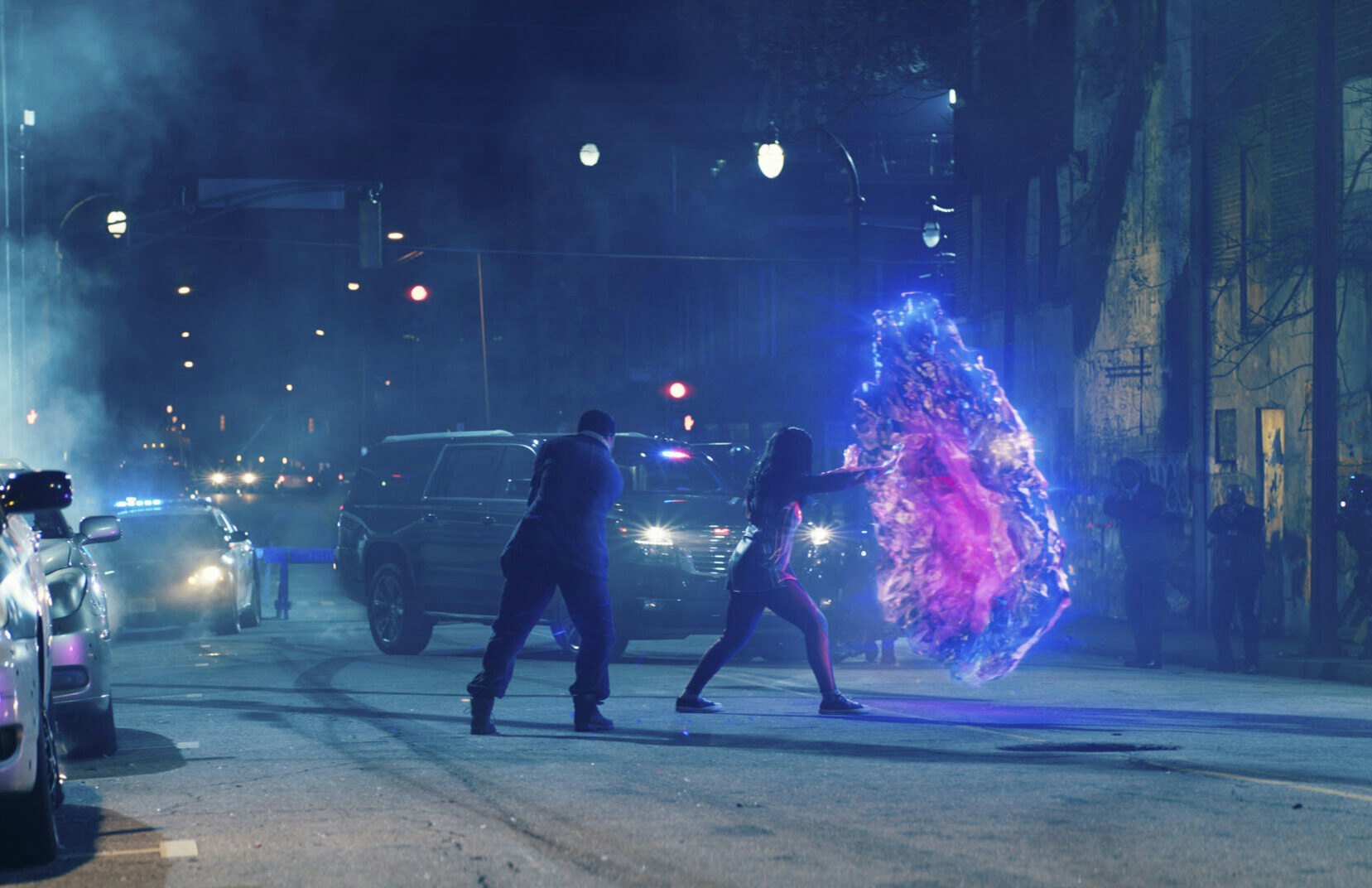
Ms. Marvel’s finale made Disney+ history, but not in the way you might think. The TV-PG streaming series opened with a trigger warning advising discretion as some events may be disturbing. Later in the episode, a team of militarized government agents chase a handful of teenagers through the halls of their high school using laser sights and “nonlethal” ammunition.
For anyone who’s been following recent current events, the real-world connection seems clear. But while Marvel Studios may have managed to offer up a trigger warning, the episode still fails to tell a coherent or thoughtful story about Ms. Marvel’s issues with law enforcement in its sixth and final episode.
Instead, the Marvel Cinematic Universe fell back on the same false excuse deployed when police go too far in our world — the system isn’t at fault, just one bad apple.
Ms. Marvel vs. Damage Control
I actually praised Ms. Marvel for letting the Department of Damage Control be the unequivocal villains back when the series premiered. For a franchise that has worked closely with the U.S. military, showing those supposedly working for “justice” have their own biases and prejudices was truly refreshing. Agents Cleary (Arian Moayed) and Deever (Alysia Reiner) worked to hunt down Kamala during her brother’s wedding, and later target Kamran too.
However, in this final confrontation with the Department of Damage Control, it’s Agent Deever who is the ultimate antagonist. Agent Cleary, the one we first met in Spider-Man: No Way Home, orders Deever to fall back, but Deever goes on with the mission.

It may seem like an insignificant moment, but this is the point where the plot goes off the rails. By posing the final confrontation as not a Department of Damage Control operation but the hijinks of one rogue agent, Ms. Marvel reinforces the “bad apple” trope, where unjust and biased practices of law enforcement are due to one person with bad intentions — not systemic racism and prejudice.
This is further shown in the crowd outside the school when local cops get between the DODC and Kamala and Kamran. It’s not law enforcement that’s the villain, just this one specific employee of this one specific department.
This feels like a huge missed opportunity for this series, which has never shied away from pointing out Islamophobia in America. Even in Episode 6, Nakia notes that their mosque was always under surveillance, and when the DODC walks into the mosque, everyone whips out their IDs. “Not our first rodeo, Ms. Agent,” is what Deever gets in response to a seemingly random investigation looking for Kamala and Kamran.
Fixing Ms. Marvel

So how could Ms. Marvel have approached this aspect of the episode differently? It’s as simple as allowing the Department of Damage Control to take the full fault for hunting down Kamala, then getting outsmarted by a bunch of teenagers in hoodies in baseball hats. It may not be the most flattering image for the department, but maybe it’s something they could learn from. Instead, we see Cleary and the local cops trying to save the day and stop Deever.
America’s justice system is deeply flawed, and what problems there are — whether it’s systemic racism in our world or a slow invasion of shapeshifting aliens in the MCU — can’t be narrowed down to one person. It’s an issue that goes down to the root. If Ms. Marvel is so dedicated to showing the real life of a Muslim Pakistani teenager, it should show real law enforcement attitudes, even if the department is fictional.
Ms. Marvel is now streaming on Disney+.







